Understanding H-1B Requests for Evidence Requirements
When a company sponsors a foreign worker for an H-1B visa certificate, everyone hopes for smooth approval. But often, that hope is interrupted by a Request for Evidence (RFE). An RFE is USCIS’s way of pressing pause on the case. It’s not a denial, but rather a formal request for more documentation before the petition can be decided. It is pretty frustrating for employers and workers as it adds cost, stress and weeks or even months of delay.
RFEs are not random as they typically arise for predictable reasons and most of them are avoided through careful preparation. Even when they are issued, a strong and well-documented response turns the case back on track.
At the Law Office of Gregory J. Eck, we have seen hundreds of H-1B visa evidence petitions and the patterns are clear: USCIS tends to focus on the same issues repeatedly.
This article will walk you through the five most common reasons for H-1B RFEs, explain why USCIS asks these questions and provide strategies to build petitions that minimize risks.
-
1. The Specialty Occupation Challenge
The most challenging aspect of H-1B visa evidence petition is to demonstrate that the job offered is one of a specialty occupation. Simply put, the job must require at minimum, a U.S. bachelor’s degree or its equivalent from a specific and specialized field.
The challenge is that the USCIS does not accept employer’s claims at face value. Many times, they reach for the OOH infodoc published by the Department of Labor. The OOH contains information on the minimum requirements for some of the covered occupations. USCIS has its own version of the handbook. If the handbook suggests that some workers in the occupations enter without a bachelor’s degree, USCIS may argue that the role does not meet the specialty standard.
Most of the time, this is an issue for job titles that are broad and generic like “Consultant,” “Manager,” or “Analyst.” Take for instance the “Business Analyst” petition. It might raise red flags because the OOH states that analysts enter the field without significant training.
For employers to be able to properly classify job positions, they must provide descriptions of duties that go deeper than just the title of the position. The petition must explain, in detail, the specific job tasks that need to be performed which require high-level, specialized knowledge. The employer must not just state “analyze business requirements,” but instead explain how the employee will, for example, design SQL queries, interpret data models, or apply predictive analytics with statistical software. All of these require professional training in Computer Science, Mathematics, or related disciplines.
Sometimes, other documents strengthen the claim. University professors or other well-known professionals in the field provide expert opinion letters justifying why the position is a specialty occupation. If the employer has a pattern of requiring a specific field of a degree for hiring similar positions, then providing this pattern of hiring can reinforce the argument.
Under all the documents and explanations, without a doubt the most important thing is to be clear. The direct and logical association of the job and the responsibilities and the degree is very important for USCIS. The more petitions make that explicit, the lower the risk of RFE greatly increases.
-
2. The Employer-Employee Relationship Question
Another frequent RFE problem deals with the idea of the “employer- employee relationship.” USCIS requires the petitioning company to have the ability to control all employment-related aspects of the H-1B employee, including hiring, payment, supervision, and if needed, termination.
This issue becomes even more pronounced with consulting and staffing arrangements where the employee is placed at the client's location. USCIS is concerned the petitioner has ceded control of the daily supervision of the employee to the client. If that is the case, USCIS may assert the petitioner is not the real employer.
Take the example of a technology consulting company that applies for an H-1B visa evidence for a software developer who will be employed at the corporate office of a bank. USCIS may issue an RFE if they think the bank will have influence over the developer's assignments and timetable. The consulting company must present proof that it is still the legitimate employer in order to get around this. This frequently consists of the employment contract, which details the employee's pay, benefits, and rights to supervision; organizational charts that identify managers in the petitioner's business; and client letters attesting to the petitioner's continued control over the worker's work.
The message USCIS wants to hear is simple: even if the worker sits at a client site, the petitioner still controls the job. When that relationship is clearly documented, the RFE risk drops substantially.
-
3. Proving Beneficiary Qualifications
An H-1B visa evidence petition is about the employee as much as the job. The beneficiary's suitability for the specialty occupation must be demonstrated to USCIS. This implies that a degree (or its equivalent) that is directly related to the job is required of the employee.
There are issues when the degree is from a foreign country, when the topic of study isn't exactly what the job requires, or when work experience is substituted for formal schooling. For instance, because the areas don't line up perfectly, a candidate with a degree in mechanical engineering asking for a position as a software engineer may cause an RFE.
Providing through documentation is the answer. A U.S.-accredited service's credential review verifies whether a foreign degree is comparable to a bachelor's degree earned in the United States. Employers should provide proof of further education, certificates, or coursework that fills in any gaps in the degree field. Specific job descriptions must be included in these letters, such as a list of the database systems, programming languages and engineering tools used. Three years of relevant work experience is used to replace one year of college-level education under USCIS's “3-for-1 rule.”
This point is effectively illustrated by a real-world example. Because the applicant's degree was in Mathematics rather than Computer Science, one petition for a data scientist was denied. In response, the employer provided a number of documents, including letters attesting to years of Machine Learning experience, certifications in Python and R programming, and a credential review that equated the degree to a bachelor's degree from the United States. The package was accepted by USCIS, and the petition was authorized.
-
4. Concerns About the Availability of Work
USCIS also examines closely whether there is adequate work to be able to support the H-1B employee for the desired amount of time. This is most common with small businesses or companies that are heavily reliant on client assignments.
The fear is that the employee will be brought in to perform one task and sit “on the bench” with nothing actually being accomplished once the task is finished. USCIS demands proof that the employment will be consistent and continuous.
For example, a company that filed a petition for a Machine Learning Engineer was sent an RFE because USCIS doubted it was able to keep the worker busy. The company was able to overcome the objection by presenting a business plan of three years of upcoming product development, investor agreements proving financial success, and client agreements showing demand for its AI services. The petition was approved because USCIS could see the pipeline of work was real and sustainable.
For employers, the best method is to offer documents with a clear vision for future work. Among these documents, some include Statements of Work, client contracts, purchase orders and letters of intent. For startups and small businesses, financial evidence like bank statements, revenue reports or investor funding demonstrates the capacity to pay wages in the long run.
In other words, USCIS would like to ensure that the H-1B visa evidence employee will not be unemployed. The more detailed and future-focused the papers, the better the case.
-
5. Wage and LCA Issues
Finally, one of the most avoidable yet frequent reasons for RFEs involves wages and the Labor Condition Application (LCA). The LCA, certified by the Department of Labor, must align perfectly with the H-1B visa evidence petition in terms of job title, work location, and salary. Even minor discrepancies trigger an RFE.
Another common issue arises with wage levels. USCIS has become increasingly skeptical of Level 1 (entry-level) wages, especially for roles labeled as specialty occupations. Officers often question how a truly specialized role can be considered entry-level.
For instance, an employer once filed for a Software Engineer at a Level 1 wage in New York. USCIS argued that the duties described — involving advanced programming and system design — were inconsistent with an entry-level classification. The employer ultimately had to justify why the role was considered Level 1 by showing the worker would start under close supervision, gradually increasing responsibilities.
Employers avoid these pitfalls by double-checking consistency across all documents for the wage level accurately to reflect the complexity of the duties. Provide additional evidence when in doubt such as market wage surveys or industry benchmarks so that the offered salary is fair and appropriate.
The broader point is that USCIS takes wage accuracy seriously. A mismatch or underpayment concern is not viewed as a clerical error; it is seen as a potential compliance issue. Employers should approach this step with meticulous attention to detail.
1
Conclusion
Requests for Evidence are tied to the most frequent areas where USCIS consistently finds defects in H-1B visa evidence petitions. By understanding these trends, employers and foreign laborers can file better petitions in the first place, saving time, money, and aggravation.
Whether it's the definition of an occupation as a specialty occupation, definition of the employer-employee relationship, definition of the worker's qualifications, the creation of a pipeline of work available, or the comparison of wages to regulation, the response to all of them is the same: proper documentation and careful preparation.
At the Law Office of Gregory J. Eck, we assist professionals and employers in anticipating these issues in advance and preparing petitions that will withstand scrutiny. An RFE is not required to halt your immigration strategy in its tracks and with the right strategy, it can often be avoided altogether.


